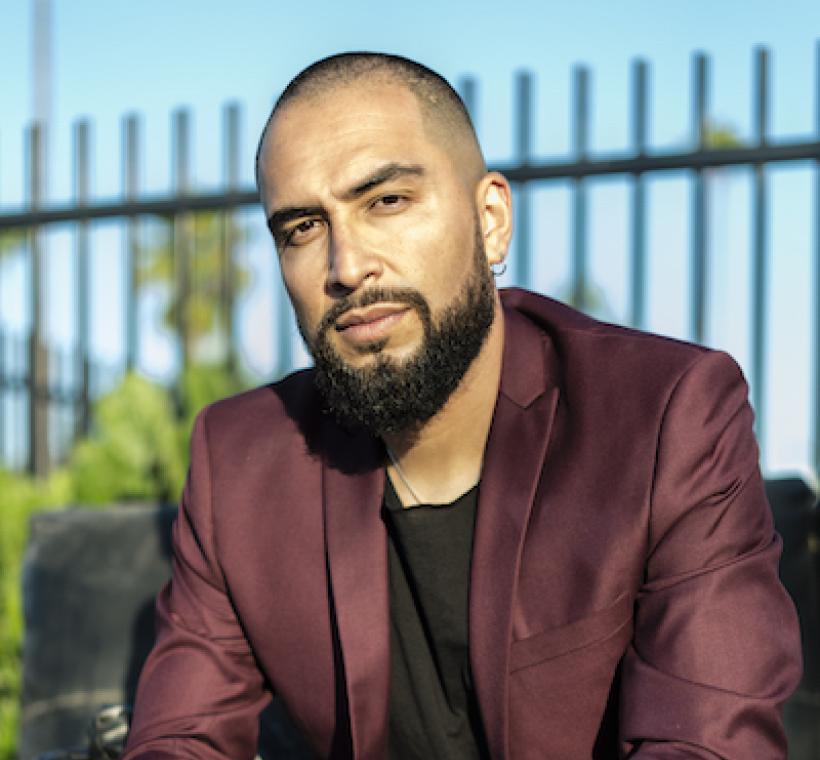
Ernesto Rocha
Tell us about yourself:
I am an undocumented storyteller, organizer and speaker that draws inspiration to write stories from the mundane and daily rhythm of our lives; that is where spirit lives. I am originally from Tepatitlan, Jalisco Mexico, and I immigrated to the U.S. at the age of 8. I grew up listening to mom’s stories and threats of what would happen if we told anyone about our immigrant journey. Fear of the law, government and all strangers saturated our childhood. It took many years, countless hours of therapy, and many protests in the streets to finally give myself permission to tell my story, my way.
I am an organizer by training and found that our narrative stories have a tremendous power to incite action and Change. I always felt privileged to listen and bear witness to the narrative stories of community members, students, and workers through my organizing campaigns. And at the same time I noticed that through the practice of curating stories, the larger social justice movements could use these narratives to color the wonky talk of policy solutions and reform. It was here that my love for storytelling began.
A piece of yours or project (in any medium) that you'd like to share.
A few years ago I wrote and performed a piece inspired by my mom’s uncanny ability to grow all things in her garden. I performed Plantitas at KPCC’s Unheard LA live show from Long Beach. This is a special piece to me because it recalls the journey of my family as first-generation immigrants living in the United States. While our journey was difficult, the act of growing roots here was fueled by mom’s deep love and willingness to survive in a foreign country. This is a story about her plantitas, love, resilience and growth.
Plantitas, by Ernesto Rocha
What draws you to storytelling?
Storytelling, in its purest form, is the practice of time travel. With a story, a listener/viewer or witness can be transported to multiple time realities with the use of sounds, images, fragrances, dialogue, frequencies and more. Storytelling as a practice allows me to feel the most alive at the moment where I become entangled with the characters of a story, be it with characters from my past or those not yet imagined. Storytelling then is where all time realities exist at once.
What excites you the most about being a New Voices Scholar?
What excites me most about this program is having honest conversations with other audio creators and storytellers like myself. Knowing that we all want to present our projects to the world can be intimidating, and having others to support you along the process is a reward all in itself. This is the same group of visionary storytellers that are pushing me, with the utmost care, to finally release my ideas into a world that is outside my full control. After all, ideas are meant to interact with one another in order to grow and develop. This program builds up and validates your ideas as already being good enough.
What’s playing on your radio/audio streaming service right now?
I am currently hooked on Resistance, a podcast that covers stories of resistance, organizing, struggle and social justice movements. This is a show that showcases masterful storytelling, humor, grit, tenderness and above all truth.
What’s the most underrated tool (technical or not) that you use in your creative process?
Paper and pen. I am a huge visual learner and communicator. Oftentimes I have to draw out what I want to say before I write it. This means that I like to draw out story arcs, timelines and storyboards. Second to that are voice memos. Who knew that singing in the car while recording yourself could be so soothing!
What is something you want to see more of in the industry?
I’d like to see more bilingual shows that cover illness, caregiving and the mental health impact of surviving. In the time that I researched shows as reference for my current project, I came across very little material that touches on the issue of cancer survivorship. Cancer as an issue affects a considerable amount of people of color, yet the stories that are told do not reflect the nuance of how we survive it as a family.
Who/What are your radio/audio inspirations and why?
Sayre Quevedo, audio producer at VICE. His work really comes from a place of heart. His projects touch you at a level that tugs at the core of who you are. Whether he is producing shows about climate justice or writing about his most intimate encounters, his work always speaks from the heart.
Saidu Tejan-Thomas Jr. host of Resistance Podcast. I love Saidu’s work because it is real. His writing is strong, cutting and holds the women in his life with high regard. I especially love the piece that he wrote about his mother. This piece has inspired me to write a piece about my mom’s experience with fighting Stage 4 cancer.
Anything else you'd like to add?
Here is the link to my TEDx Talk and a podcast that I created called Loose Accents. A huge thank you to my incredible AIR mentor, James T. Green, for their incredible guidance, support and patience as I navigate my journey through this difficult year in our family’s collective story.